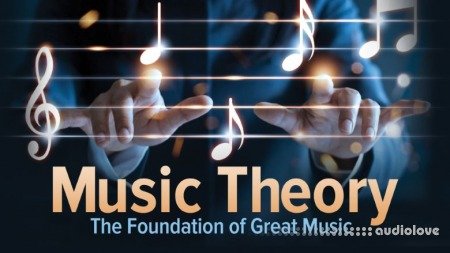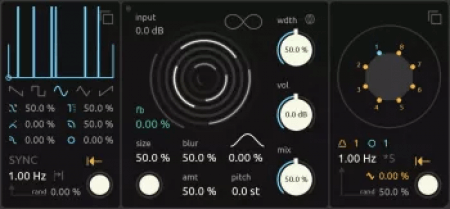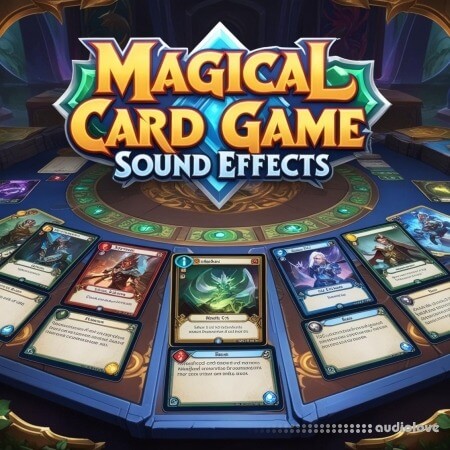TTC Music Theory: The Foundation of Great Music Last updated 9 2024 TUTORiAL

P2P | 07 October 2024 | 6.23 GB
Music has a phenomenal power to move, transport, and delight us. Across numerous styles and forms—from the iconic masterpieces of the classical tradition to genres such as jazz, rock, pop, and folk—great music expresses the inexpressible, speaks across time and cultures, and galvanizes audiences across the world. And the more we understand about music, the more we appreciate it, and a knowledge of music theory is the best place to start.
Music may be the most abstract of the arts, as its sonic language is a spectrum of tones, but it has a highly organized structure, a structure that allows for both its form and its meaning. In fact, the great expressive capacity of music and its ability to captivate us and to deeply communicate is rooted in its organized structure and how that structure is used creatively by composers, as well as by performers.
A clear knowledge of the theory of music—the “how” of music—offers you insight into
How a musical narrative is created and how music communicates;
How music uses time and moves through time;
How the tension, release, and resolution of musical harmony play an essential role in the expressive power of music;
The diversity of musical styles, and what makes musical styles and genres what they are, be it classical, jazz, bluegrass, or rock & roll;
How rhythmic structure influences the effect the music has on us;
How different expressive effects are created, both by composers and players;
How music is conceived by those who write and play it; and more.
In Music Theory: The Foundation of Great Music, you’ll delve into the inner workings of Western tonal music through 18 enjoyable and revealing lessons taught by Professor Sean Atkinson of Texas Christian University. Professor Atkinson, an eminent music theorist and teacher, makes music theory refreshingly clear and accessible, demystifying the skill of reading music as well as the principles of musical analysis. Using a highly interactive approach, he orients the lessons to an understanding of how music creates its remarkable effects, both formally and expressively, and how this understanding benefits us as listeners and players.
At the heart of these lessons lies the ability to read music as a tool for understanding what you hear and for deepening your enjoyment in listening, as well as for playing music. As you learn, step by step, to read and understand the written score, you’ll see the structure of the music and how the music unfolds on the page. You’ll also see how musical tones are written down in the form of notes, with each note having a rhythmic value, showing how long the note lasts in time. And you’ll study how rhythm and meter work in music, how the key element of musical harmony functions, how a musical score is performed, and much more. With highly valuable insights for both listeners and instrumentalists, these 18 engaging lessons will teach you to become literate in the language of music.
Discover the Inner Structure of Musical Expression
As you develop your skills in reading and understanding the score, you’ll explore the essential elements of musical form, structure, and composition, such as
Tonality—Grasp how most Western music is based in tonality—the organization of musical tones into recognizable patterns; learn how musical scales, 7-note sequences, form the sonic grounding or tonality of works of music, how major and minor scales are often associated with different states of mind, and how musical scales are related to one another;
Rhythm and Meter—Learn how rhythm forms a central structure or backbone for a piece of music, and build skill in reading and performing musical rhythms; also, study meter, the organization of musical pulses or beats within the music and on the page, and explore the systems of simple and compound meter;
Counterpoint—One of the core features of Western classical music, uncover the parameters of counterpoint, the writing of two melodic lines which are played at the same time; see how the melodic lines move in very specific ways, forming a coherent sequence that makes melodic and harmonic sense, and creating the basis for musical narrative;
Harmony—Study the laws of harmony, the foundation of tonal music, where two or more notes are played together; learn how chords, groups of three or more notes that sound at the same time, form sequences or progressions, creating tonal tension or instability that leads finally to resolution or stability—an integral element of the expressive power of music;
Musical Narrative: Phrase Structure—Witness how a piece of music unfolds by means of musical units called phrases, which have a beginning and an end; then see how phrases are encompassed within larger units called periods and sentences, allowing the music to create a sense of a narrative or “story” in sound; and
Playing the Score: Elements of Expression—Explore the markings within a score that indicate how the music should be performed; take account of dynamics, the volume or loudness of a given sequence, articulation, the way an individual note should be performed, and tempo, the speed of the music, and how these indications are realized by performers.
Enjoy Literacy in the Language of Music
Throughout the course, Professor Atkinson’s spirited and approachable teaching style makes for a thoroughly compelling and fun excursion into music theory and its applications. He illustrates the elements of musical form and structure with recorded examples from great works by Bach, Mozart, Haydn, and Robert and Clara Schumann, as well as excerpts from jazz, rock, and other musical genres, showing how the principles of tonal music apply within different musical forms. Extensive onscreen graphics clearly illustrate the musical elements under discussion, making the material easy to follow and directly graspable. A special course workbook provides many additional resources for study and practice.
A particularly special feature of this course is a live session with a working jazz pianist, who plays several jazz classics, interpreting the songs using only chords and a melody line. Here you witness musical improvisation in action, and its relevance to understanding musical form and expression.
Music Theory: The Foundation of Great Music offers you an adventure in listening, a richly insightful inquiry that will deepen your appreciation and enjoyment of one of our world’s most sublime art forms.
home page:
https://bit.ly/3cwbOqJ
DOWNLOAD
Related News:
 TTC Music Theory: The Foundation of Great Music TUTORiAL
TTC Music Theory: The Foundation of Great Music TUTORiALP2P | 02 February 2021 | 6.36 GB Music has a phenomenal power to move, transport, and delight us. Across numerous styles and forms—from the iconic masterpieces of the classical tradition to genres such as jazz, rock, pop, and folk—great music expresses the inexpressible, speaks across time and cultures, and galvanizes audiences across the world. And the more we understand about music, the more we...
 Music Theory: A Fun and Easy Guide to Understanding Music
Music Theory: A Fun and Easy Guide to Understanding MusicEnglish | 2021 | ISBN: N/A | ASIN: B08SDTJ37T | 216 pages | PDF | 155 MB Welcome to "Music Theory ". If you wish there was a fun and engaging way to help you understand the fundamentals of music, then this is it. Whether it's learning to read music, understanding chords and scales, musical forms, or improvising and composing, this enjoyable guide will help you to finally start understanding the...
 Udemy Music Composition 1 TUTORiAL
Udemy Music Composition 1 TUTORiALP2P | 01 January 2020 | 516 MB What you'll learn By the end of the course you will be able to compose your own rhythms and melodies. This includes motifs, phrases, periods and phrase groups....
 Oxford Studies in Music Theory Organized Time: Rhythm Tonality and Form
Oxford Studies in Music Theory Organized Time: Rhythm Tonality and FormEnglish | 2018 | ISBN: 0190696486 | 440 Pages | PDF | 32.83 MB Organized Time is the first attempt to unite theories of harmony, rhythm and meter, and form under a common idea of structured time. Building off of recent advances in music theory in essential subfields-rhythmic theory, tonal structure, and the theory of musical form-author Jason Yust demonstrates that tonal music exhibits similar...




Comments for TTC Music Theory: The Foundation of Great Music Last updated 9 2024 TUTORiAL:
No comments yet, add a comment!